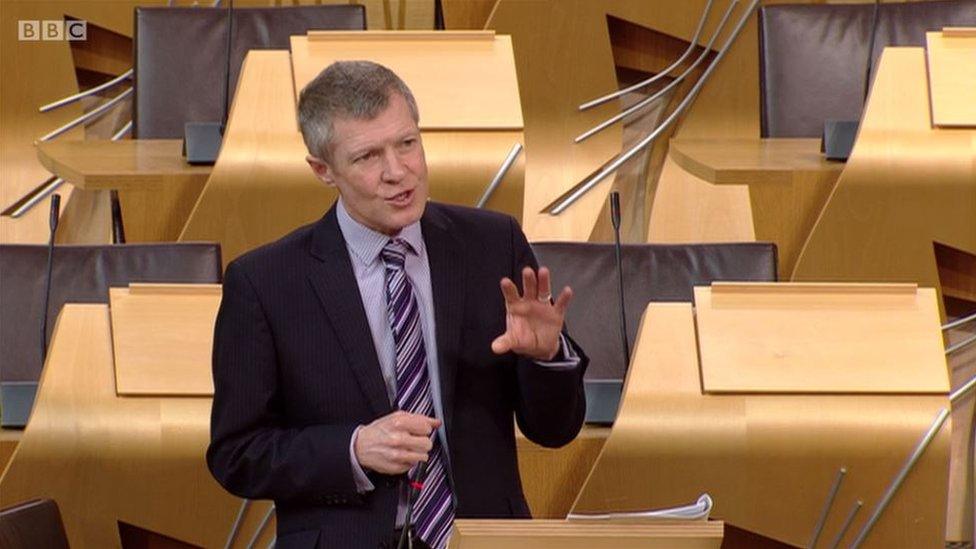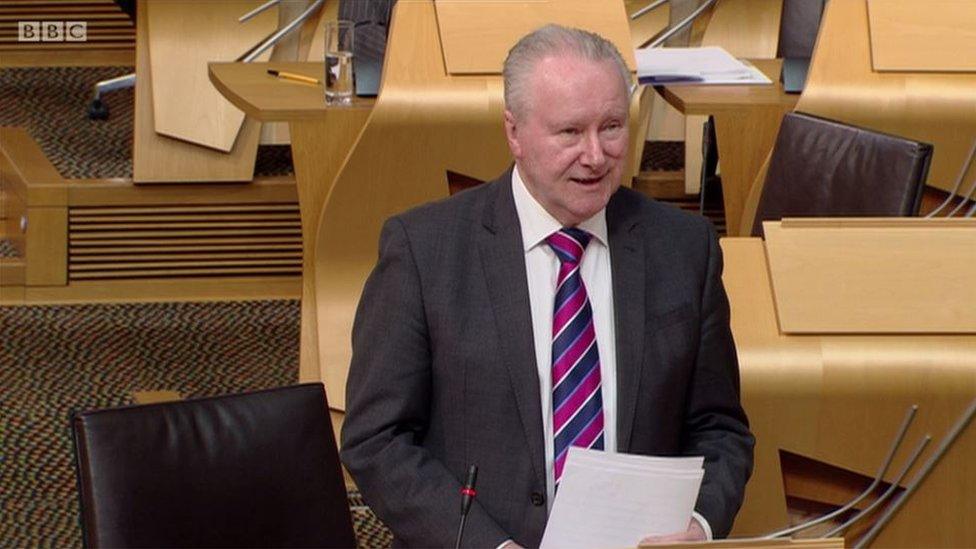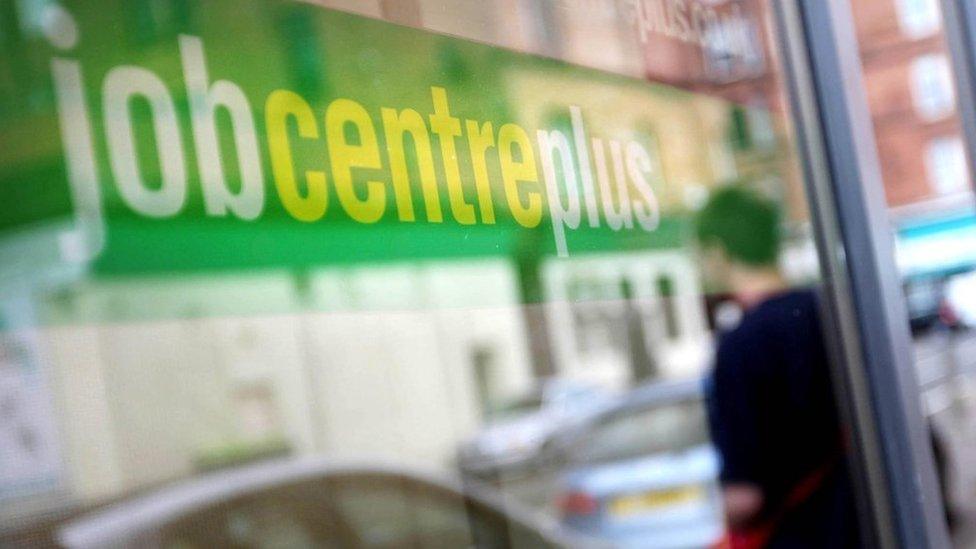'I agree with Alex': harmony breaks out at Holyrood
- Published

Scottish Lib Dem leader Willie Rennie found himself agreeing with Alex Neil
Do you remember the phrase "I agree with Nick"?
Do you remember the context? It was the 2010 UK General Election. The Leaders' Debate.
"Nick" refers to Clegg, N, he who led the Liberal Democrats at the time. The vocal agreement came - repeatedly - from Labour's Gordon Brown as he sought to marginalise David Cameron.
In the event, of course, Mr Clegg ended up agreeing with Mr Cameron sufficiently to form a coalition which survived for five years before the Lib Dem leader ended up, with decided reluctance, advising his colleagues to go back to their constituencies to prepare for oblivion.
Things move on, the centre cannot hold. But today in the Scottish Parliament there was a consensual contagion of a rather different kind.
Rare harmony
Willie Rennie, he who presently leads the Lib Dems in Scotland, agreed not once but four times with Alex Neil, the Social Justice Secretary.
This level of harmony is so rare that Mr Rennie felt moved to apologise, with a wry smile. More generally, Mr Rennie's remarks caught the tone: a desire to make things work in the interests of the Scottish people.
The topic, with faint irony, was the new welfare powers proposed for Scotland - including the prospect of abolishing the so-called bedroom tax.

Alex Neil said getting benefits paid on time and in full would be the number one priority
Remember that? Willie Rennie certainly does.
When it was introduced by the UK Coalition (part-owner, Nick Clegg), it caused considerable discomfiture to his party in Scotland. To the extent that, in one memorable conference debate in Dundee, only one Scottish Lib Dem hand was raised in support of the policy (still haven't found out who it was - my search continues).
Water under the bridge, however, according to the Scottish Lib Dem leader. Mr Rennie recalled that he had played a role in ensuring that it proved possible for the devolved Scottish Government to fund measures to mitigate the impact of the policy in Scotland.
And, perhaps shivering mentally at the memory, he plainly felt happier aligning himself with Mr Neil's determination to put fairness and dignity at the heart of the new welfare agency which will run eleven benefits due to be devolved to Holyrood.
Priority number one
This measure is the flip side of the tax powers which are due to be implemented from 2017, if feasible.
No firm date yet for the benefit plan but it will certainly be after that tax date, given that Mr Neil has promised legislation to set up the new system by April 2017 - with, inevitably, a period of preparation thereafter.
It was a thoughtful, cautious speech by Mr Neil. Perfectly sensibly, he said that folk didn't want to hear high oratory on this. They wanted benefits, paid on time and in full. That, he said, would be the number one priority.
The Scottish eleven includes, primarily, benefits to help those with disabilities plus carer's allowance, the Sure Start maternity grant, severe weather support and several others. Some £2.7bn expenditure, currently.

The Conservatives warn the new system must "discourage welfare dependency"
There was consensus elsewhere too.
Neil Findlay welcomed the Minister's assurance that the system would aim to treat folk with compassion. Mr Findlay also contrived successfully to place his remarks in an historic and social context, recalling that benefits had first been contemplated "to end destitution".
For the Conservatives, John Lamont had warned over the weekend that over-generous provision might provoke a "benefits stampede".
He eschewed such language today, perhaps responding to the mood in the chamber, while still urging the Scottish government to provide "concrete proposals" on implementation and cost - and noting that the objective should be to "discourage welfare dependency".
Brief consensus
Will today's consensus last? No. Nor should it. The offers are beginning to emerge. As well as scrapping the "bedroom tax", Mr Neil promised to increase the carer's allowance to the level of support for jobseekers.
Labour leaders say they'll match that and also offer a full grant to pupils going from care to higher education plus a doubling of the maternity grant.
And the competition over funding grows. Should there be changes to Scottish income tax? If so, at what rate or rates? Paid by whom?
Those and many other related issues will provoke debate between the parties in the run-up to May's election and beyond. Bring it on, as someone once said in a very different context.